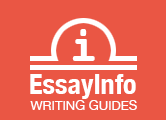- Limit to one page. You do not have to state everything you have done on a resume, but everything you state must be true.
- Determine the type of layout that works best for your experience. You may use bolding to emphasize key skills and accomplishments.
- Tailor your resume to the type of position to which you are applying. Decide what you want your resume to convey about your abilities.
- Maintain a consistent writing style.
- Do Not use "I" or "my."
- You may use complete or fragmented sentences as long as the meaning is clear and style is consistent.
- Start each description with an action word. Use present tense verbs when referring to current activities. Use past tense verbs when referring to past activities.
- Especially if you are interested in the financial industry use numbers, where appropriate, to quantify the scope of involvement.
- Include a brief explanation of an organization in your description if its name is obscure. Remember, the reader is not necessarily familiar with Trinity.
Proofread your resume...
Always proofread your work. In today's society of computers and word processors that do all the spell checking and grammar checking for you, there is no excuse for misspelled words or grammatical errors. With these mistakes, your resume almost always ends up in the trash. Also, have a friend review your resume to catch some of the mistakes the computer may have missed.
Be conservative...
Simplicity is the key. Do not use a bunch of fancy lettering that is hard to understand. Stick to one type of font. However, make distinguishes. Use bold, italics and underline where desired. Do not make your lettering so small that the employer cannot read it.
Use quality paper...
Make sure your paper is white and of good weight, not flimsy. You do not have to go out and buy expensive bond paper, unless your want. It does not take any thing away from your resume. It's just that your resume is going to photocopied and faxed so many times that it defeats the purpose.
Always be truthful...
Do not lie. You will be expected to know how to do everything your resume says you can do.
Be Concise...
One page is good for people who have just started their careers. Two pages for more extensive experience. Try not to go over two pages unless you have been in your profession over 15 year.
Avoid the use of I...
If at all possible, avoid the use of I when writing your resume.
Know the audience
First of all, then writing it is important to play to your audience. Steven King always includes the elements that his fans expect. An action film is expected to have an explosion or something major in the first scene. A romance is expected to introduce at least one of the main people in the first 5 minutes. A resume has to be written for its audience too.
List your strongest skills first.
People evaluating resumes only read the first 3-4 items. I see many "skills" sections that list 20 operating systems or 20 languages or 20 vendors and that's a fine way to show that you have a lot of experience over many years. However, the person reading your resume is only going to read the first 3-4, so make sure those are the ones you want to work in. Don't list them in chronological order: that just emphasizes out-of-date technology.
A friend listed the languages she knew in the order she learned them. Which of the these two would a clerk find most useful if he/she was told to find a "Windows C++ programmer".
- BASIC, Pascal, C-64 BASIC, AppleBasic, Cobal, Fortran, C, awk, C++, Visual C++, Perl
- Perl, Visual C++, C++, awk, C, Fortran, Cobal, AppleBasic, C-64 Basic, Pascal, BASIC.
Number 2 is the more appealing, right? List the technologies you want to work with first.
Delete the super-old technologies like Commodore 64 and Apple II.
A concise way to list skills is to group them:
- Operating systems: Unix (FreeBSD, Solaris, Linux), Windows 95/98/2000/NT, and others.
Never lie
I shouldn't have to say this, but don't lie on your resume. Don't exaggerate your skills. Don't claim you have certifications that you don't have. Companies would rather know that you don't know something but are willing to learn than be surprised to discover that you misrepresented yourself.
I had rather poor grades in college so I didn't include my GPA on my resume. I was honest when asked for my GPA during interviews: the first interview was with someone that didn't complete college, and was unconcerned with GPA: he thought experience was more important.
I once interviewed someone that claimed they had designed LANs and WANs only to discover that they had talked about it with friends, usually while drinking at parties. If he had said he is looking to get started in LAN/WAN design, I might have hired him and enjoyed teaching him the rules of the road. Instead, I ripped up his resume after he left.
If they don't discover you are misrepresenting yourself, then they'll be surprised when your job performance isn't what they expected and end up terminating you after a few months. Don't waste their time. There are jobs out there for every skill level no matter where you are.
Your filename
Never use a filename like "resume.doc" when sending your resume as an attachment. Name the file something like "resume_tom_limoncelli.doc" so that if the HR person saves it, s/he will be able to easily tell yours from someone else's...and your resume won't be overwritten the next time someone else sends them a file called "resume.doc".
Questions an employer asks
The questions that are going through the minds of employers are:
- Can you solve problems?
- What are the benefits of hiring you over someone else?
- How will you fit into the organization of the company?
- Will you have a strong commitment to your job?
- How will you increase the company's benefits and profits?

